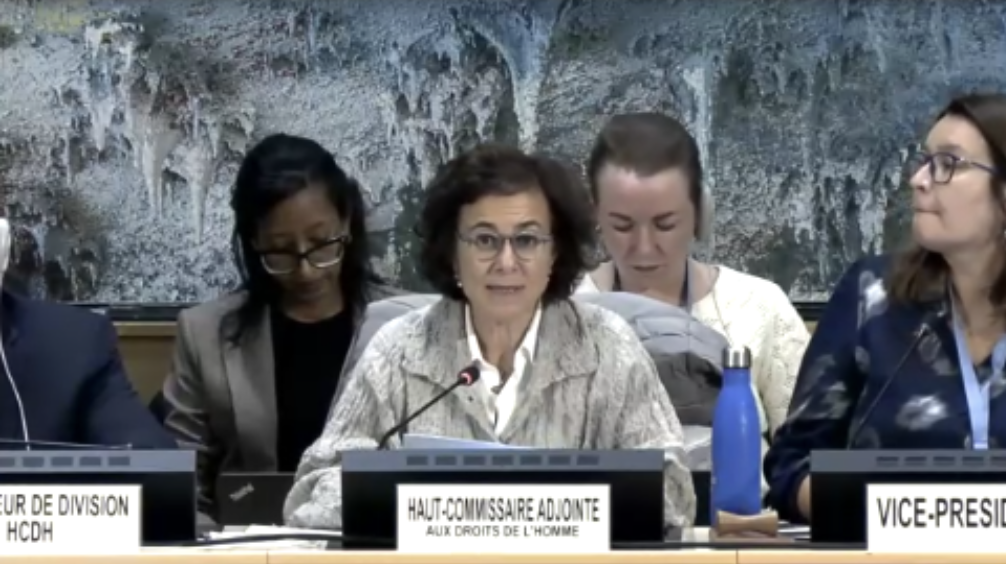
Libya in Transition: Navigating Human Rights Challenges
The 60th Session of the Human Rights Council
8 September- 8 October 2025
Item 10: Interactive Dialogue on technical cooperation in Libya
2- 3 October 2025
by Teboho Mosebo/ GICJ
Executive Summary
During the 38th and 39th meetings of the 60th Session of the Human Rights Council, held on October 2-3, 2025, the Interactive Dialogue on technical cooperation in Libya highlighted the pressing need for meaningful progress on human rights in the country. Deputy High Commissioner Nada Al-Nashif presented the report A/HRC/60/82 on technical assistance and capacity-building carried out by the Office of the United Nations High Commissioner for Human Rights (OHCHR) in cooperation with Libyan authorities from April 2024 to May 2025.
Al-Nashif underscored the concerning human rights situation in Libya, particularly the stalled transitional justice and reconciliation efforts, widespread arbitrary detention, and deteriorating civic space and women's rights. She emphasised the need for Libya to prioritise human rights and implement the recommendations, which include ensuring accountability, supporting Libyan-led reconciliation, and enhancing technical assistance and capacity-building efforts.
NGOs participating in the meeting expressed a range of views on the human rights situation in Libya. While some condemned persistent human rights abuses, others acknowledged the efforts made by Libyan authorities to address human rights challenges. NGOs welcomed Libya's efforts to investigate cases involving disappearance and torture and repeal laws criminalising political expression or restricting a free and independent press. However, they also expressed deep concern about the dire situation of migrants, refugees, and asylum-seekers, who face hate speech, disinformation, and violent attacks. Furthermore, they highlighted the alarming conditions in detention facilities, where detainees face torture, ill-treatment, and poor living conditions.
Geneva International Centre for Justice (GICJ) commends the OHCHR's efforts to support Libyan authorities in addressing human rights challenges. We urge the Libyan government to fully engage with the international community and implement the report's recommendations. Specifically, we call on Libya to prioritise human rights, ensure accountability for human rights abuses and violations, and promote civic space and women's rights.
We are particularly concerned about the situation of detainees in Libya and call on the government to take immediate action to improve detention conditions and prevent further human rights abuses. Meaningful cooperation between Libyan authorities and the international community is crucial for promoting human rights and the rule of law.
Background
In March 2015, the UN Human Rights Council passed resolution 28/30 focusing on technical assistance and capacity-building as means to promote the improvement of human rights in Libya. The resolution mandated the UN High Commissioner for Human Rights to lead an urgent investigation into human rights abuses and violations committed in Libya since 2014. The primary goal of this investigation undertaken in collaboration with the UN Support Mission in Libya was to establish facts, prevent impunity, and ensure accountability..
As part of the mandate, the High Commissioner was tasked with seeking assistance from relevant experts, including the National Council for Civil Liberties and Human Rights, and special procedures mandate holders. Additionally, the High Commissioner was required to provide updates on technical aid, capacity-building, and cooperation with the Libyan government. These updates would include recommendations for required steps to tackle issues of accountability and establishing a fair justice system.
In response to the resolution, the High Commissioner established the OHCHR Investigation on Libya, which concluded its work in January 2016. As required, the Council received an oral update on the investigation's progress during its 30th session in September 2015. A written report detailing the findings of the investigation was presented to the Council during its 31st session in March 2016.
Summary of the OHCHR report
The report was submitted pursuant to Human Rights Council resolution 56/16, providing an overview of technical assistance and capacity-building carried out by the Office of the United Nations High Commissioner for Human Rights (OHCHR) in cooperation with Libyan authorities from April 2024 to May 2025. It highlighted the main human rights challenges in Libya and concluded with recommendations addressed to the Libyan authorities and the international community.
The report underscored the following challenges:
- Transitional Justice and Reconciliation: Efforts were stalled due to disputes between the Presidency Council and the House of Representatives, hindering progress towards a comprehensive legal framework for reconciliation and transitional justice.
- Arbitrary Detention and Human Rights Violations: Law enforcement agencies and armed actors continue to perpetrate arbitrary detention, enforced disappearance, and human rights violations with impunity, resulting in widespread human rights abuses.
- Migrants, Refugees, and Asylum-Seekers: These groups are victims of hate speech, disinformation, arbitrary arrests, and violent attacks. In 2024, over 3,200 people were intercepted at sea and returned to Libya, with individuals often ending up in detention centres where they were subjected to inhumane conditions.
- Civic Space and Women's Rights: Civic space is shrinking, with restrictions on civil society organisations, and the women's rights situation worsening . This is attributed to the widespread violence against women and girls, including domestic violence, sexual harassment, and other forms of gender-based violence.
- Rule of Law and Accountability: The roles of the rule of law and accountability are deteriorating, marked by the attacks on judicial authorities, lawyers, and judges. This further weakens the justice system's ability to hold perpetrators accountable for human rights abuses.
The report noted that OHCHR and UNSMIL had provided technical assistance and capacity-building support to Libyan authorities, responding to human rights challenges. Authorities in Eastern Libya agreed to cooperate on technical assistance and capacity-building efforts, which marked a significant step towards improving human rights in the region.
In its conclusion, the report recommended ensuring accountability, supporting Libyan-led reconciliation, and enhancing technical assistance and capacity-building efforts to strengthen the promotion and protection of human rights in Libya. Libya hosts a complex displacement situation, including tens of thousands of refugees and asylum-seekers registered with UNHCR, large numbers of internally displaced persons, and communities newly displaced by events such as Storm Daniel. The international community must continue to provide support to Libya to address these challenges and promote human rights.
Summary of the Interactive Dialogue
Opening Statement

The UN Deputy High Commissioner for Human Rights, Ms. Nada Al-Nashif highlighted Libya's challenging transition to Council. According to Ms. Al-Nashif, despite the new political roadmap announced in August 2025, Libya continues to grapple with a legacy of serious human rights violations. The civic space in Libya remains under attack, and meaningful participation by women, youth, minorities, and people with disabilities is essential for inclusive dialogue.
Ms. Al-Nashif emphasised the critical role of technical support in promoting and protecting human rights in Libya. Her office has brought stakeholders together to reach an agreement on a national transition and reconciliation process, as well as a law on preventing violence against women. Specialised training has been provided for judges and prosecutors, and prison officials have undergone workshops to improve detention conditions. These efforts aim to address systematic violations of fair trial and due process guarantees.
However, key legislative reforms are undermined by political fragmentation and lack of institutional capacity. Ms. Al-Nashif expressed concern over persistent patterns of arbitrary detentions, extrajudicial killings, and enforced disappearances. She welcomed Libya's declaration accepting the ICC's jurisdiction and encouraged full cooperation. Her office remains committed to supporting Libya's human rights efforts.
Ms. Al-Nashif hoped that the upcoming Universal Periodic Review will provide an opportunity for Libya to improve its human rights record. She emphasised the importance of accountability and cooperation with international human rights mechanisms.
Statements of the Concerned Country
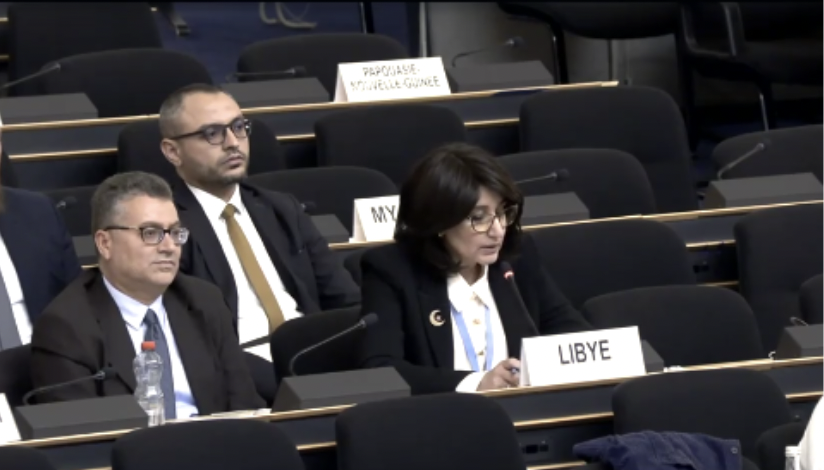
The delegate of Libya expressed commitment to respecting human rights and working with human rights mechanisms. She thanked the OHCHR for its efforts in implementing resolution 56/16 and requested the extension of the mandate for technical assistance. However, she noted that the report conveys a negative image of human rights in Libya. Furthermore, she highlighted that the Government has taken steps to promote human rights, including establishing mixed commissions with state officials, the judiciary, and the Support Mission.
In spite of challenges such as political divisions and armed non-state actors, the delegate emphasised that Libya is committed to combating impunity, establishing the rule of law, and promoting human rights. Moreover, the government is seeking support from the international community to achieve stability and peace, with the ultimate goal of ending the transition period. Ultimately, Libya remains determined to work constructively with human rights mechanisms to implement the resolution on technical assistance and capacity building.
Statements of Other Countries
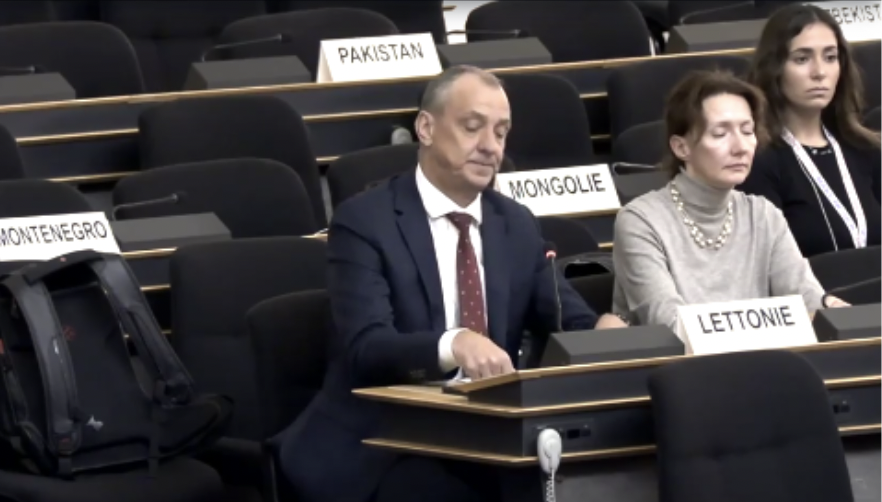
The delegate of Lithuania, on behalf of the Nordic and Baltic countries, welcomed the efforts made by the Office of the High Commissioner in granting partial access to both Eastern and Western Libya. He strongly urged the Libyan authorities to take further steps in establishing a structure for genuine dialogue within their institutions. He emphasised that Libyans have been denied long-lasting peace and security for far too long. He further stated that the continued lack of justice and the absence of the rule of law has led to the significant erosion of political and civic space, as well as grave violations of human rights and international humanitarian law. Lastly, full support for the OHCHR's continued efforts in establishing a comprehensive, rights-based, and people-centered national reconciliation and transitional process was expressed.
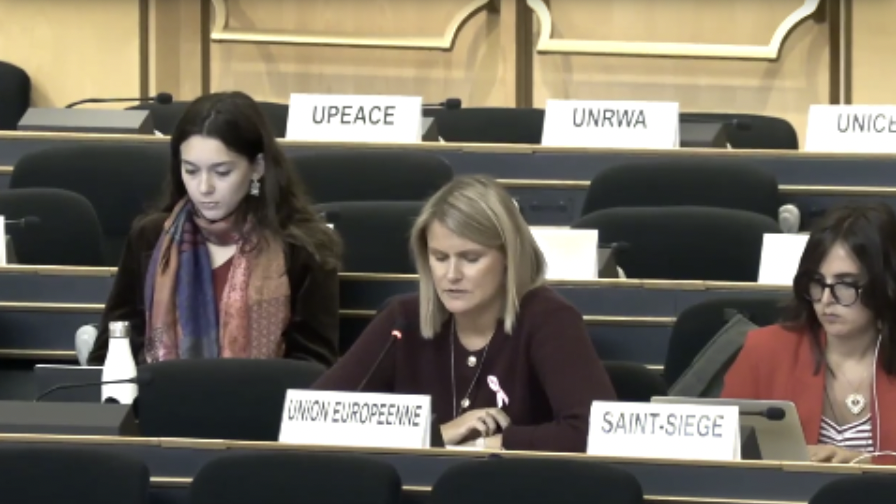
The European Union representative thanked the OHCHR for its important work and welcomed its report. The EU commended Libya's decision to seek renewal of the Item 10 mandate and the country's extended cooperation with the OHCHR, particularly by granting partial access to detention sites in Eastern and Western Libya. However, the EU called on Libya to further expand its cooperation and grant unhindered, safe, and full access to the whole country.
The EU expressed deep concern over the human rights situation in Libya, condemning human rights violations and abuses, and the systematic repression of civic space. The EU called for accountability for those responsible and urged Libyan authorities to respect freedom of expression, press, assembly, and association, and to protect and fulfil human rights. The EU also echoed OHCHR's call to immediately close all unofficial detention centres and urged Libyan authorities to end enforced disappearances and arbitrary detentions.
In conclusion, the EU stood ready to work with Libya, in collaboration with the OHCHR and UNSMIL, to improve the human rights situation and support the country's path to a safe, peaceful, and united Libya for all its citizens.
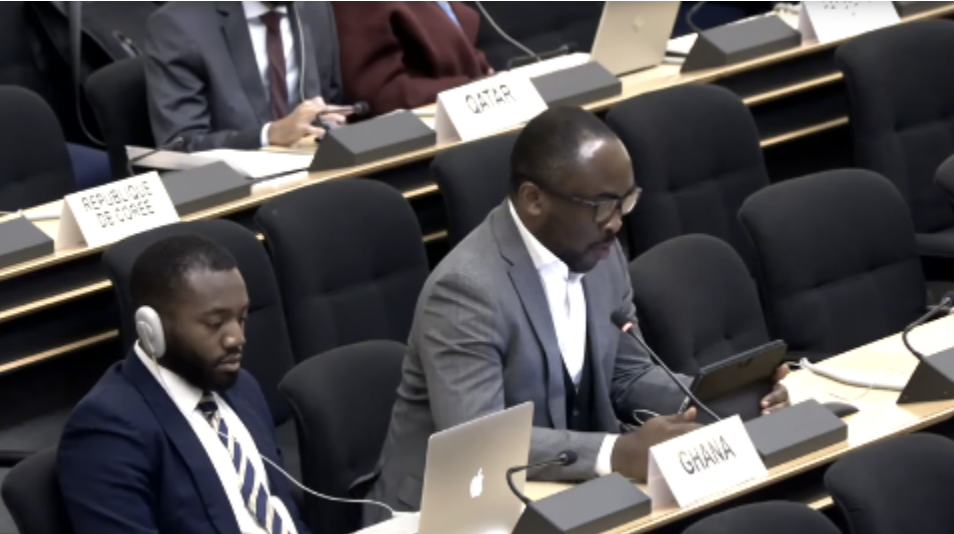
The delegate of Ghana, speaking on behalf of the African Group, noted the report's focus on the implementation of technical support and capacity building in Libya, particularly in the context of human rights. The African Group commended the efforts to protect and promote human rights, as well as the steps taken to fight against impunity. These include the strengthening of the judiciary system and prosecuting those responsible for human rights violations. . The delegate emphasised the need for the OHCHR to continue providing technical support and capacity building to national institutions. The African Group believed that such technical assistance is crucial for improving human rights, accountability, and the rule of law in Libya.
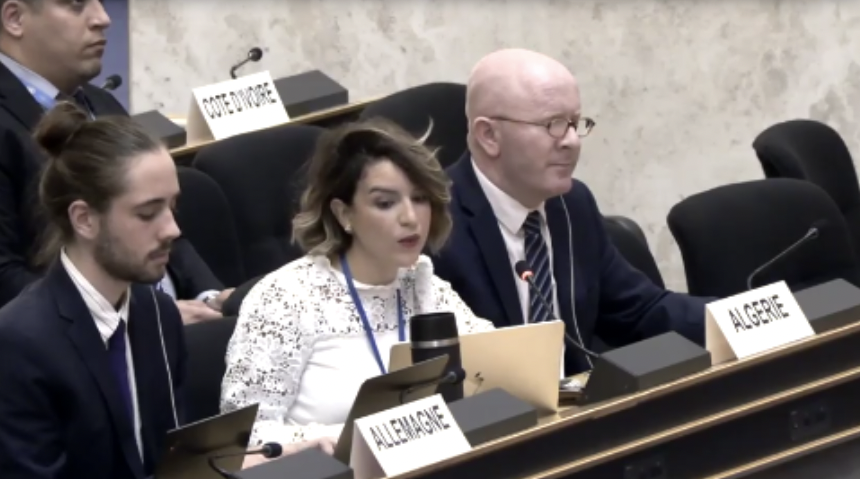
The Algerian representative, speaking on behalf of the Group of Arab States, took note of the report and acknowledged Libya's cooperation with the OHCHR. The Arab Group applauded the Libyan authorities' efforts to improve human rights and implement recommendations from the international community, as well as their prosecution of perpetrators of human rights violations. She stressed the need for support to Libyan institutions to further enhance human rights, emphasising that it is the authorities that can help bring an end to human rights violations. The Arab Group expressed support for the draft resolution tabled by the African Union Group, aimed at providing technical support to Libya in the field of human rights.
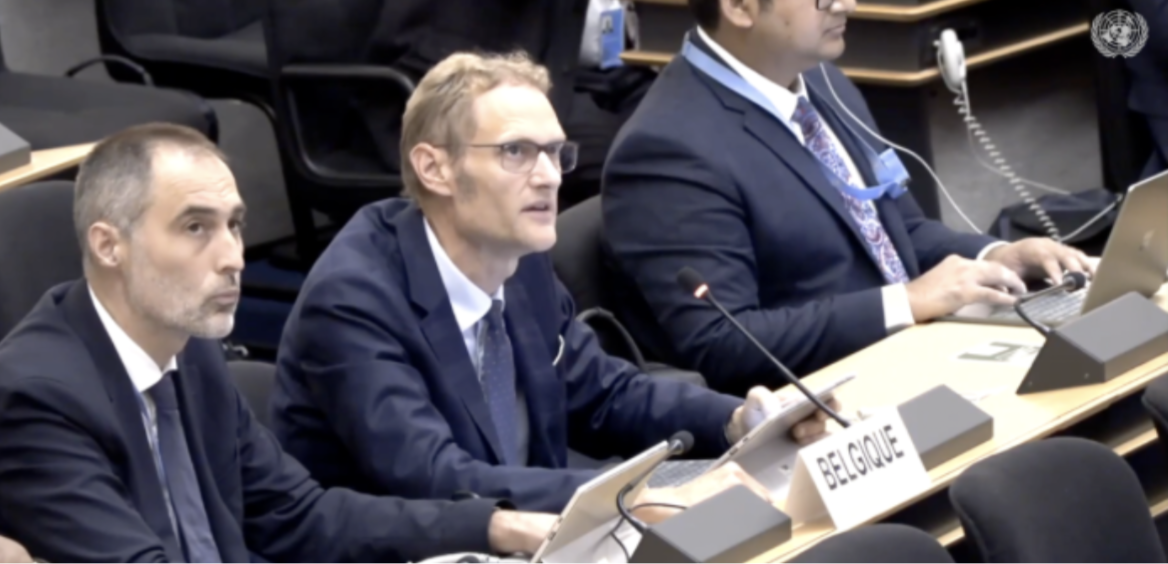
The delegate of Belgium expressed deep concerns about the human rights violations in Libya, including cases of arbitrary detention and enforced disappearances. Belgium notes that many requests to address alleged violations remained unresponded to. While acknowledging the enhanced engagement of the Libyan authorities, which resulted in the partial access of Libya, Belgium called on the authorities to increase their cooperation with the OHCHR and grant access to all places of detention. Lastly, Belgium recommended that the human rights violations in Libya must be addressed, including commitment from the authorities, emphasising that this will ensure the sustainability of technical assistance and capacity building.
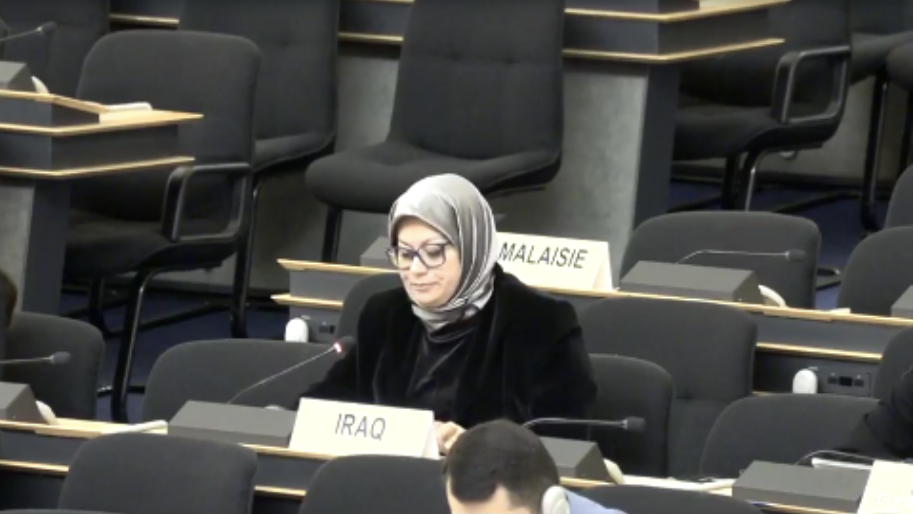
The delegate of Iraq expressed support for Libya's cooperation with the OHCHR. Iraq welcomed the efforts of the Office of the High Commissioner in supporting capacity building in Libya, particularly in improving detention conditions, the criminal justice system, and creating an environment conducive to justice and reconciliation. She urged that capacity building and technical support be provided in accordance with Libya's needs, working closely with the Libyan authorities.
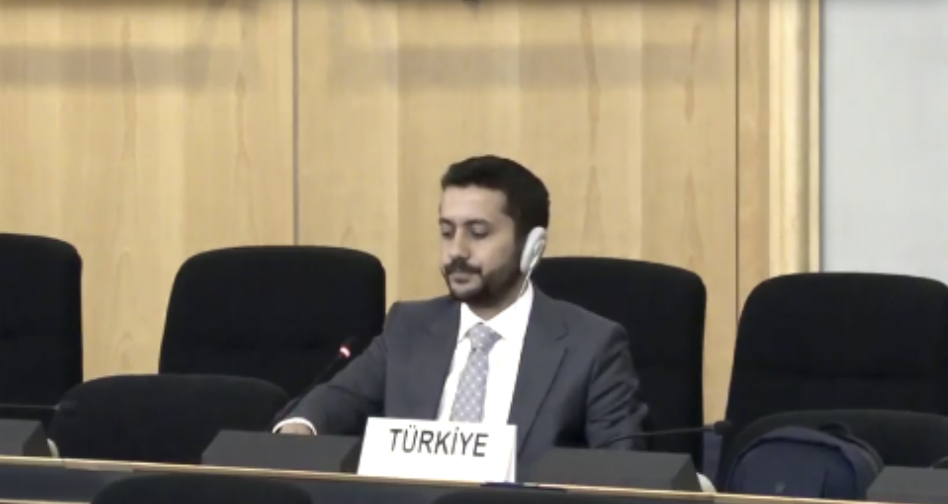
The delegate of Türkiye welcomed the report and reaffirmed Türkiye's commitment to contributing to capacity-building efforts in Libya. Expressing full confidence that the Libyan authorities would give due consideration to the High Commissioner's report, Türkiye pledged to continue supporting fair and credible elections in the country. Furthermore, Türkiye remained steadfast in its support for all Libyan-led efforts, driven by a spirit of solidarity and friendship. Türkiye vowed to stand in solidarity with the Libyan people in their quest for peace, security, stability, and prosperity.
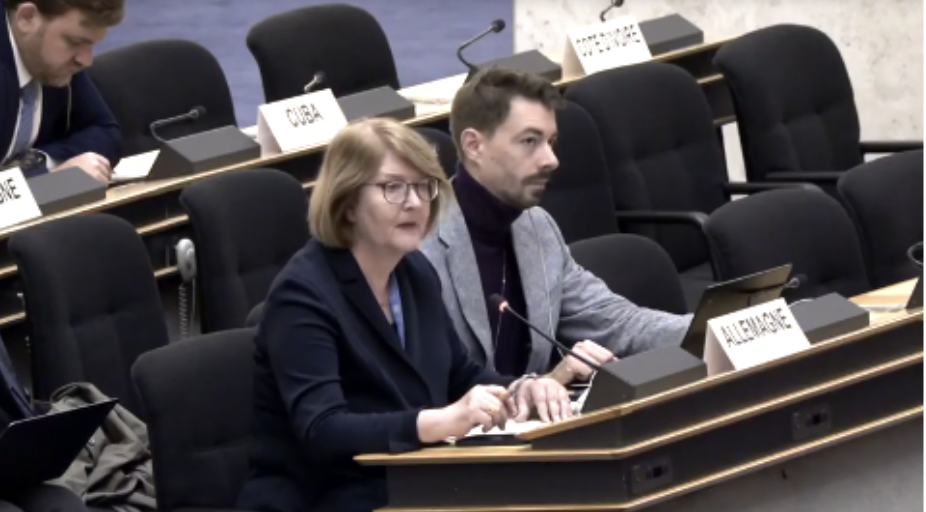
Germany aligned itself with the statement of the European Union and welcomed the report. Germany emphasised that the High Commissioner's efforts are vital to strengthening human rights in Libya. Despite progress achieved in collaboration with the Libyan authorities, significant human rights violations persist. To enable long-term peace and stability, Germany stressed that Libya needs to break the cycle of impunity and restore the rule of law. Germany commended Libya for its cooperation with the OHCHR, particularly the improved access to detention facilities and capacity-building missions. Germany called on all actors to cooperate fully with OHCHR and provide unhindered, safe access throughout the country.
Conclusions
Nada Al-Nashif concluded the Interactive Dialogue by emphasising that the human rights situation in Libya remains a pressing concern. She noted that the stalled transitional justice and reconciliation efforts, widespread arbitrary detention, and deteriorating civic space and situation of women's rights were all indicative of the significant challenges Libya faced in its transition. She stressed that it was crucial for the international community to continue engaging with Libya and providing support in addressing human rights challenges.
She welcomed the efforts made by Libyan authorities to investigate cases involving disappearance and torture. She noted the repeal of laws criminalising political expression or restricting a free and independent press as a positive development. However, she emphasised that much more needed to be done to ensure accountability for human rights abuses and violations, protect civilians, and promote inclusive dialogue. She urged the Libyan government to prioritise human rights and implement recommendations made during the Interactive Dialogue.
She ended by calling for collective efforts to protect and promote human rights in Libya, stressing that the country's progress depended on meaningful cooperation between the government and the international community. She expressed hope that Libya would continue to work towards a future where human rights are respected, protected, and promoted for all.
Position of Geneva International Centre for Justice (GICJ)
Geneva International Centre for Justice (GICJ) reiterates its commitment to promoting and protecting human rights in Libya. We acknowledge the efforts made by the Libyan authorities to address human rights challenges, including investigations into cases of disappearance and torture. However, we remain deeply concerned about the ongoing human rights abuses, particularly the widespread arbitrary detention, enforced disappearances, and torture.
We call on the Libyan government to prioritise human rights and take concrete steps to ensure accountability for human rights abuses and violations. This includes implementing the recommendations made during the Interactive Dialogue and engaging in meaningful cooperation with the international community. We emphasise the importance of protecting civilians, promoting inclusive dialogue, and ensuring the rights of women, migrants, and refugees are respected and protected.
#HRC60 #Libya #OHCHR #UNSMIL #Transition #Reconciliation #Technical_cooperation #capacity_building #HumanRights #Geneva_International_Centre for Justice #GICJ #Geneva4Justice




